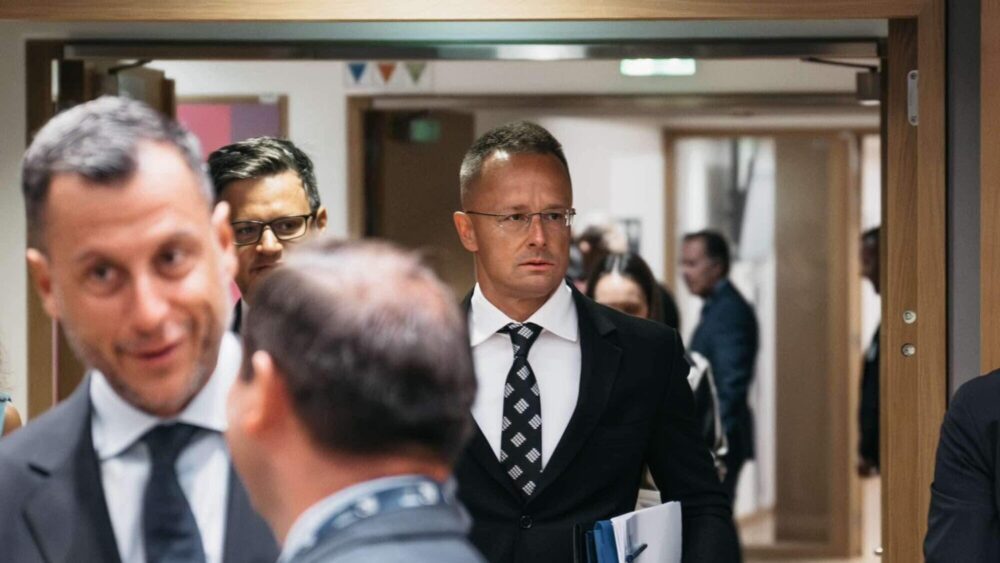
Hungarian Foreign Minister Péter Szijjártó
The European Union’s foreign ministers are gathering for an informal meeting in Brussels on Thursday, August 29th—a meeting that should have been held in Budapest, but the hosting rights were vindictively taken away by the European Union’s left-wing foreign affairs chief, Josep Borrell.
As we previously reported, Spanish politician Borrell took the arbitrary decision last month to move the informal meeting from Budapest to Brussels, as revenge for conservative Hungarian Prime Minister Viktor Orbán’s attempts at finding a peaceful solution to the war in Ukraine. In July Orbán visited Kyiv, Moscow, Beijing, and Washington D.C. to talk to the participants in the war, as well as the leaders of global powers that have the influence to end the conflict.
Hungary took over the role of the rotating Presidency of the Council of the European Union on July 1st, and Orbán started his tour one day later. The prime minister made it clear that he was not engaging in talks on behalf of the EU, yet he was chided by the Brussels elite, especially for talking to Russian President Vladimir Putin.
The EU foreign ministers’ meeting at the end of the summer is traditionally hosted by the country holding the presidency, but Josep Borrell announced at the end of July that the meeting would be held in Brussels—a decision he had the right to take, but one the Hungarian Foreign Minister Péter Szijjártó called “childish.” Borrell’s move was especially senseless, seeing as how 13 out of 27 EU member states wanted the summit to take place in Budapest, and only five were firmly against the idea.
“We have to send a signal, even if this is a symbolic signal,” Borrell said. The progressive foreign affairs chief has been at odds with the conservative government in Hungary, with the two sparring over a myriad of foreign affairs issues.
In his press statement before departing to Brussels on Thursday, Szijjártó said Borrell is “luckily” stepping down from his role (with former Estonian Prime Minister Kaja Kallas set to take over). The Hungarian foreign minister said Borrell’s latest “dangerous” proposals include putting Israeli government ministers on an EU sanctions list, which, according to Szijjártó, would close channels of communication with the EU’s ally—itself at war with the Palestinian terror group Hamas.
Borrell also wants the EU to send more weapons to Ukraine, and make it agree to the country using these Western weapons to strike targets deep within Russia. Both of these proposals would risk escalating the conflict in both the Middle East and Ukraine, Szijjártó said.
🪖 Foreign Minister Péter Szijjártó expressed horror at the brutal footage circulating on video-sharing platforms, showing how poor Ukrainian citizens are being taken to the front lines, where many face almost certain death.
— Zoltan Kovacs (@zoltanspox) August 29, 2024
🕊️ FM Szijjártó emphasized the urgent need to end this… pic.twitter.com/zE6BSO9Dmv
The main topic of discussion will indeed be Ukraine at the meeting on Thursday. Ukrainian Foreign Minister Dmytro Kuleba, who is also attending, told Politico that Kyiv’s top priority is convincing allies to allow Western-supplied weapons to be used deep inside Russia.
Ukraine’s Western allies have been hesitant in allowing the country to use their weapons against targets inside Russia in fear of provoking Moscow, but both the United States and Germany gave into pressure in May, announcing their weapons could be used on Russian territories only near the border with Ukraine, mainly for “counter-fire purposes.”
Ukrainian President Volodymyr Zelensky has pleaded for the authorisation of the use of long-range weaponry against Russian targets, more air defence systems to defend Ukrainians from Russian missiles, and for more direct Western involvement.
Despite being on the defensive against Russian advances in the Donbas region of Ukraine, Kyiv’s forces captured over a thousand square kilometres inside Russia in recent weeks, along with nearly a hundred settlements. Zelensky said he wants to put Kyiv in a stronger position to negotiate from and increase internal pressure on the Kremlin.
